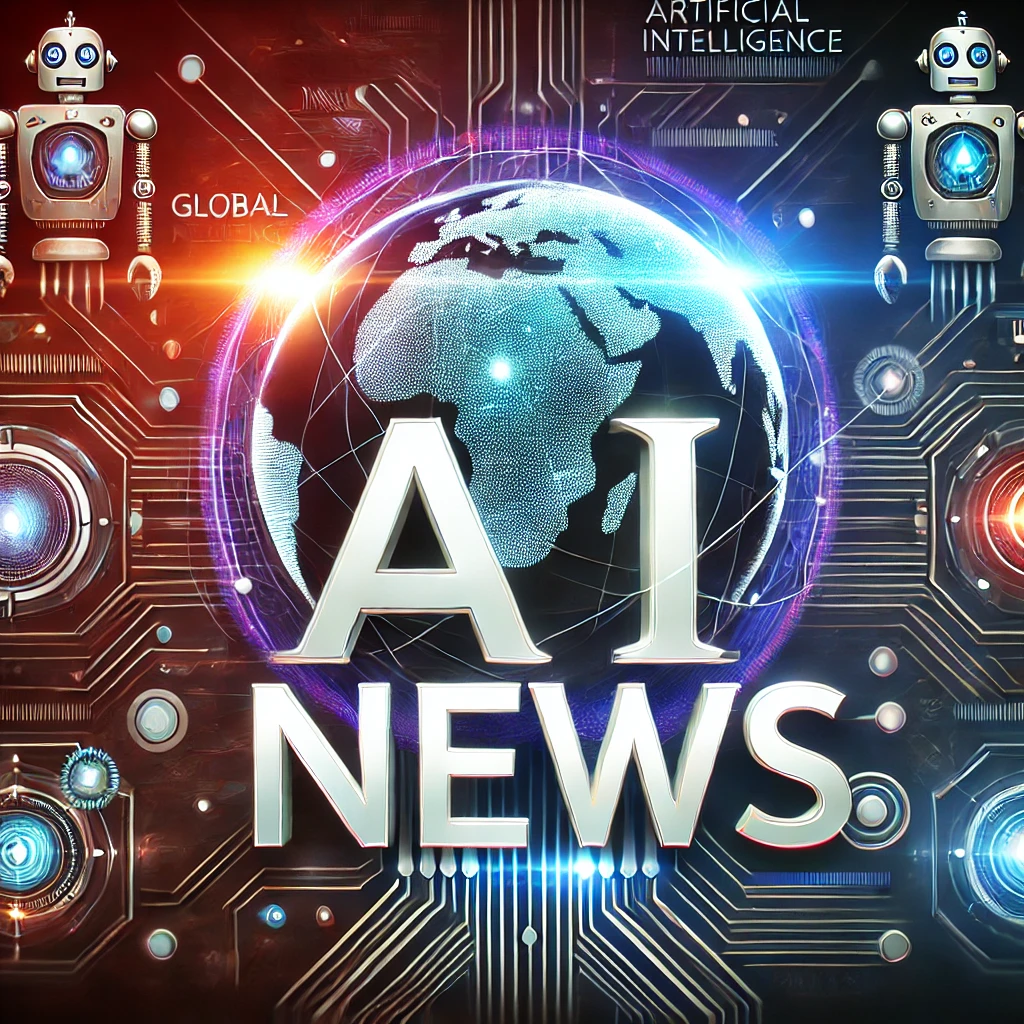Adres
Polska, Warszawa

AI Takes Control in January – A Comprehensive Look at Recent Developments
Artificial intelligence (AI) continues to shape the future, bringing forth innovations that redefine industries, education, and research. In January, we’re seeing a convergence of AI advancements, from ambitious timelines for Artificial General Intelligence (AGI) to transformative tools that enhance creativity, productivity, and accessibility. This article explores these developments in detail, delving into their implications and showcasing how they’re influencing our world.
The Road to AGI: Predictions and Debates
What is AGI?
AGI, or Artificial General Intelligence, represents the next frontier in AI development. Unlike narrow AI systems, AGI aims to perform intellectual tasks across a wide range of domains, rivaling human reasoning and adaptability. It’s often described as the point where AI transitions from specialized tools to systems that can think, learn, and solve problems as humans do.
Industry Predictions
• Sam Altman’s Optimism (OpenAI): During a public discussion, Altman hinted that AGI could be a reality by 2025. His confidence is rooted in the accelerating pace of advancements in AI scaling and capabilities.
• Dario Amodei’s Pragmatism (Anthropic): Amodei foresees a slightly later timeline of 2026-2027. He cautions that hurdles like computational bottlenecks, geopolitical issues, or data limitations could slow progress.
Challenges in Defining AGI
Despite the enthusiasm, the road to AGI is fraught with ambiguity:
1. Ambiguous Metrics: What exactly constitutes AGI? Without a clear definition, companies may prematurely claim AGI achievements.
2. Diverse Perspectives: Competing firms might disagree on benchmarks, leading to conflicting narratives.
3. Unseen Thresholds: We might surpass AGI without realizing it, as its characteristics could evolve incrementally rather than through a single breakthrough.
The Narrative of Slowing Progress: Myth or Reality?
Diminishing Returns in Training
Recent reports from Bloomberg and other sources point to slowing progress in AI training:
• Companies are encountering diminishing returns as they expand their datasets and compute resources.
• Scraping new data and increasing computational power alone are no longer sufficient to yield dramatic improvements.
Optimizing Inference
The perceived slowdown doesn’t tell the whole story. Instead, companies are shifting focus to the inference phase—the moment when an AI model generates responses:
• OpenAI has developed methods to enhance reasoning capabilities during inference, making AI interactions smarter and more accurate.
• The distinction between training and inference improvements highlights how AI is maturing into a more nuanced, efficient field.
Transformative AI Capabilities and Tools
Agentic AI: Revolutionizing Productivity
OpenAI’s forthcoming agentic AI represents a significant leap forward:
• Functionality: These AI agents can read applications like Xcode or Terminal, analyzing their content and providing real-time suggestions.
• Future Potential: The next versions might automate tasks, such as writing code or managing files, streamlining workflows for developers and professionals.
Innovative AI Models
• Google’s Gemini Model: Leading the Chatbot Arena leaderboard, Gemini demonstrates unparalleled conversational depth and responsiveness. Its success highlights the competition among top-tier AI developers.
• AI Applications in Creative Domains: From YouTube’s AI-generated music remixes to Google’s dynamic video re-angling technology, creative AI tools are expanding possibilities in entertainment and content creation.
Collaborations Driving AI Forward
NASA and Microsoft: Earth Co-Pilot
The collaboration between NASA and Microsoft is making geospatial data more accessible:
• Users can interact with complex datasets, uncovering new insights about the Earth’s environment.
• This partnership exemplifies how AI can bridge the gap between raw data and actionable knowledge.
Cultural Preservation with AI
The Vatican’s digital twin of St. Peter’s Basilica offers a groundbreaking way to explore cultural heritage:
• Built using over 400,000 high-resolution images, the model allows virtual tours and detailed examinations of the site.
• This initiative preserves history while making it accessible to a global audience.
AI’s Impact on Education, Creativity, and Business
Education: Democratizing Learning
AI tools like OpenAI’s ChatGPT and Google’s Gemini are reshaping education by:
• Providing personalized tutoring and support.
• Encouraging hands-on learning through interactive app-building projects.
• Bridging gaps for learners with diverse needs, offering accessible and adaptive learning solutions.
Creativity: Expanding Possibilities
AI-powered creativity tools are empowering creators in unprecedented ways:
• YouTube’s music remix feature allows content creators to generate unique soundtracks, ensuring proper attribution and avoiding copyright issues.
• Google’s video re-angling research enables filmmakers to explore new perspectives without additional filming.
Business: Transforming Industries
AI is not only optimizing workflows but also enabling new business models:
• Agentic AI: Automates repetitive tasks, freeing up time for strategic planning.
• AI in Marketing: Tools like 11 Labs are creating personalized voiceovers and enhancing customer engagement.
The Broader Implications of AI Advancements
Bridging Accessibility Gaps
AI innovations like dynamic video editing and digital cultural models bring high-level tools to individuals and organizations that previously couldn’t access such technology. Whether it’s preserving ancient heritage or democratizing video editing, AI is a force for inclusion.
Driving Economic Growth
AI’s ability to streamline processes and create new products fosters economic expansion. Businesses can now enter markets more efficiently, scaling operations with minimal investment.
Ethical and Regulatory Considerations
As AI progresses toward AGI, ethical concerns and regulatory frameworks will play a critical role in ensuring safe and equitable development.
AI is not just a tool; it’s becoming an integral part of how we innovate, learn, and create. From Sam Altman’s vision of AGI in 2025 to the practical applications of agentic AI, the future is closer than ever. By embracing these advancements, we can unlock opportunities across education, business, and creativity, ensuring a more connected and innovative world.
Explore these tools and join the AI revolution. Start by experimenting with platforms like OpenAI and Google’s Gemini Model, or dive into AI-powered creativity with YouTube’s AI Remixes.